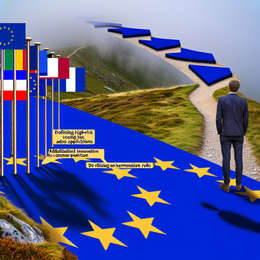Imagine living in a world where artificial intelligence (AI) is much more than a mere tool; it is a consistent source of innovation and regulation-driven progress. The European Union is already witnessing such a change, with AI legislation steering the realms of technology and commerce, and offering innovative solutions to complex problems. So, the question here is, can these regulations serve as a solid framework, ushering a new era of consumer protection and tech advancements? Can Europe set a global standard that harmonizes technological growth with ethical governance? This blog post sheds light on these questions and offers an inspiring roadmap for AI’s future amidst new regulatory landscapes.
🧭 The Promise of Progress: Europe’s AI Regulatory Odyssey Begins 🛤️
The Initial Struggles
The first footsteps into regulating AI were not taken lightly. Acknowledging the vast potential but also the risks of AI, Europe confronted significant challenges, such as defining high-risk applications and balancing innovation with consumer protection. The dialogue was riddled with complexities, and the uncertainties highlighted the critical nature of meticulous care and consideration within the legislative process.
The Turning Point
The breakthrough came with the European Commission’s proposal for harmonized rules, marking a pivotal moment that shaped the trajectory of AI development. This turning point fostered debates across industries, sharpening focus on ethical AI usage, and the establishment of boundaries that balanced innovation with fundamental rights protection.
Scaling Up
Once the foundations were set, Europe began the task of taking AI regulation to the next level. Discussions revolved around expediting the legislation’s adaptation across member states, considering intricate topics like AI in law enforcement and the use of biometrics, which called for a heightened level of ethical scrutiny and public discourse.
